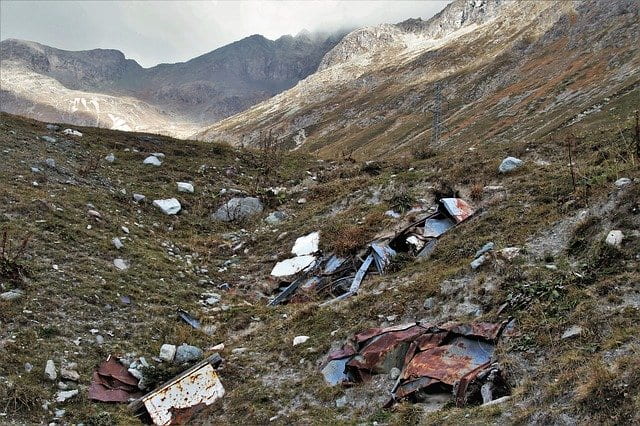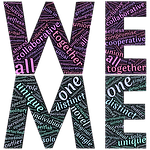 While reading about “The Chipko movement” I did see a connection between the oppression of women and the oppression of nature. The point that made me realize the connection between the oppression of women and nature was when the activist leader, a woman by the name of Chandi Prasad Bhatt gathered a bunch of other women to surround the trees so they would not be cut down. To me it seems as though women and nature will forever have a connection, we as humans, as women particularly know what it is like to not be concerned about or deemed to be unimportant or nonessential to others unless in of course if it is pertaining to money or capitalizing. Although nature as we know, does not have feelings or a voice, what we do have are people (women) who will be the voice for others or nature, because we would like to be heard. Although I do not believe a group of men would gather to protect trees from getting cut down, regardless of who would have been standing there, men or women it is for a good cause.
While reading about “The Chipko movement” I did see a connection between the oppression of women and the oppression of nature. The point that made me realize the connection between the oppression of women and nature was when the activist leader, a woman by the name of Chandi Prasad Bhatt gathered a bunch of other women to surround the trees so they would not be cut down. To me it seems as though women and nature will forever have a connection, we as humans, as women particularly know what it is like to not be concerned about or deemed to be unimportant or nonessential to others unless in of course if it is pertaining to money or capitalizing. Although nature as we know, does not have feelings or a voice, what we do have are people (women) who will be the voice for others or nature, because we would like to be heard. Although I do not believe a group of men would gather to protect trees from getting cut down, regardless of who would have been standing there, men or women it is for a good cause.
I do agree that behind the material deprivations and cultural losses of the marginalized and the poor lie deeper than disempowerment, however I also agree that disempowerment is the issue in the majority of these cases. When cultures and demographics experience disempowerment nine times out of ten it is because that is their way of life, and have been throughout the years and what their family has experienced for generations and generations. I also believe that the deeper issue is being able to be heard, along with disempowerment you can speak, but it’s about being able to be heard and having your concerns considered by those who are deemed to be “powerful” or important.
I do believe another issue is resources, and not just in relation to environmental degradation. Many other countries live in the way that those do as seen in the “The brazillian slum children who are literally swimming in garbage” article, due to lack of funding and resources. I go on to say Rome wasn’t built in a day, the countries that are currently efficient entirely like America for example have made their way here. However, I do believe in finding a way to find support from other surrounding countries in order to get theirs on an uprise. Many countries still are third world, and do not have the market, clothing factories, garbage disposal that comes around weekly etc. I believe this is a major part of the issue, but in order for something to be done about anything there needs to be enough people that care enough to make it happen. As many of the feminist riots and African American marches etc, you have to be willing to take a risk and stand up for what you believe you deserve. I understand, this may not come easy and other countries have very strict laws when it comes to disobedience. Unfortunately, the world and other countries will remain in competition and sadly at times they do not care who is left behind sinking while they swim away. So to end this, I would go on to say the issue of oppression if the lack of selflessness in others who are able to help, the abundance of fear, lack of resources and the comfortability in a lifestyle you have only ever known.

Annotations
The brazilian slum children who are literally swimming in garbage
The chipko movement

Hi Juliana,
I really enjoyed reading your post and think you made some great points. One thing you mentioned that I found interesting was when you talked about nature not having feelings or a voice. All aspects of nature definitely does not have a voice but I believe animals have feelings. They can feel pains and they have instincts that make them aware when something is going wrong. However, I agree that since women have a voice they can speak for nature to protect its rights. The issue that sometimes arises is that women are not always heard. This has been a problem for a very long time. Women speak what they know and believe but men are never willing to listen. To make a change can be hard and you mentioned that some countries are still living in poor conditions. I agree that other countries like America need to step up and help them. People in third world countries struggle everyday and they do not have any material items. A big issue with the relationship between third world and first world countries is that sometimes first world countries take advantage of them. That should never be the case activism is so important and all people should be willing to help other people along with nature.
Hi Juliana,
Your point about women’s oppression and nature’s oppression being attributed to the fact that both are limited in their influence is a great point. In the activism post made by our classmate Nick, he addresses that he felt the link between women and nature that is attributed to women having the feminine characteristics can be seen as patriarchal, and I agree with this. Although women tend to be more egalitarian with their views, it still seems like an oppressive explanation to say that women must be compassionate and must have a connection with nature in a way. This is definitely my personal opinion, but this is why I liked your comparison to the struggles of women and nature being because of the commonality of not being seen as a priority.
When you discussed how lack of resources and disempowerment relate to the fact that it is most people’s way of life, it brought me back to when we learned about the impacts of environmental degradation of women in the Global South, I find myself going back to their experiences in most of the discussions because their lifestyles are truly shaped by the conditions they live in, and activism is meant to bring attention to this part of environmental degradation. The resource issue you discussed directly relates to the lack of clean water sources to women in the Global South. They are further disempowered not only due to their lack of resources, but due to the lack of activism to ensure that these women have water sources and don’t have to endure sexual abuse, lack of income, lack of education, and other impacts just to obtain clean water.
Hello Juliana, I enjoyed reading your response, and I like you I was very interested by the Chipko movement. While it is clear to me that women have been at the forefront of environmental activism, I still don’t understand the connection thing. For starters I’m not even convinced that there is evidence that women are more active in environmental activism than other genders. You say “we as humans, as women particularly know what it is like to not be concerned about or deemed to be unimportant or nonessential to others unless in of course if it is pertaining to money or capitalizing.” While I am definitely not going to debate that women are marginalized in society but that doesn’t in my opinion connect them to nature any more than it connections asian people, gay people, or poor people. Having similarities is not a connection. At least that is how I see it. You also mention that you “do not believe a group of men would gather to protect trees from getting cut down” why do you believe that? Do you think it is a genetic thing, just a matter of privilege? When it comes to men that are environmental activists what do you think caused them to go down that route, what made them different from other men?
I apologize if any of this comes off as aggressive I do not mean it to at all. I have some disagreement, some question, but I legitimately enjoyed reading your post and don’t mean to imply otherwise.